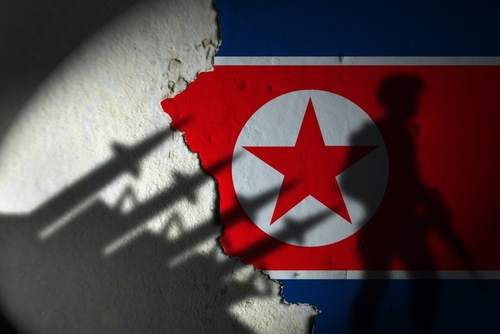North Korea’s recent test of AI-operated suicide drones under leader Kim Jong Un shines a stark spotlight on modern warfare’s evolution. These drones, if as autonomous as claimed, threaten to outpace traditional defense systems. The international community faces a growing urgency to address AI’s impact on military strategy and global arms control.
North Korea’s Technological Leap
Kim Jong Un has highlighted the growing importance of AI in arms development. His oversight of suicide drone tests underscores a strategic shift toward unmanned aerial systems. These drones reportedly have capabilities for independent tracking and monitoring of strategic targets. North Korea appears to be reconfiguring Russian Il-76 cargo aircraft for early warning.
North Korea tested an AI-powered suicide drone, supervised by Kim Jong Un, as part of military modernisation.
South Korea's military raised concerns over the drone's effectiveness and vulnerabilities.@sehgalrahesha tells you more pic.twitter.com/4KH7Wv6INl
— WION (@WIONews) March 27, 2025
North Korea has been supplying Russia with military aid in exchange for technology transfers. Reports indicate the presence of approximately 11,000 to 12,000 North Korean military personnel in the Ukraine conflict. This alliance’s implications contribute to a complex military landscape and regional instability. South Korea’s Joint Chiefs of Staff reported significant North Korean troop deployments earlier this year.
Challenges for Global Arms Control
Integrating AI into military equipment presents new challenges for global arms control. Existing frameworks are struggling to adapt to the rapid evolution of AI technologies. Kim’s directive to prioritize AI development within the armed forces is a move toward more sophisticated military capabilities. International bodies must revise treaties to oversee AI deployment in military contexts effectively.
🚨🇰🇵 NORTH KOREA UNVEILS NEW AIRBORNE SURVEILLANCE JET
North Korea just revealed a first-ever look at its airborne early warning aircraft—strikingly similar to South Korea’s Boeing-made Peace Eye—and tested AI-powered suicide drones capable of hitting ground targets like tanks.… https://t.co/A8IUVV5WEG pic.twitter.com/UG6QrBXsW5
— Mario Nawfal (@MarioNawfal) March 27, 2025
There are concerns about the ethical implications of AI in warfare. The potential for AI systems to conduct operations without human oversight heightens the risk of conflicts escalating unpredictably. Analysts express skepticism about North Korea’s ability to advance such technologies independently. Still, the threat of unregulated AI technology in conflict zones grows increasingly tangible. The global community must act swiftly to develop regulatory measures for AI military applications.
The Urgency of Ethical Standards
As AI technologies reshape military strategy, formulating ethical standards is crucial. The international community must convene to establish guidelines that govern AI usage in warfare. Unmanned and AI-focused strategies present both technological opportunities and ethical dilemmas. North Korea’s rapid progress in AI-equipped military capabilities demands immediate global attention and action.
“The field of unmanned equipment and artificial intelligence should be top-prioritized and developed in modernizing the armed forces.” – Kim Jong Un.
Kim Jong Un’s plans to expand production capacity for unmanned equipment highlight a proactive stance in technological growth. To address these advancements, effective global arms control measures must be implemented. International dialogue will be key to balancing technological progress with ethical military conduct.
Sources:
https://www.foxnews.com/world/north-koreas-kim-oversees-test-ai-powered-suicide-drones
https://www.breitbart.com/asia/2025/03/27/north-korea-claims-to-have-ai-powered-suicide-drones/




